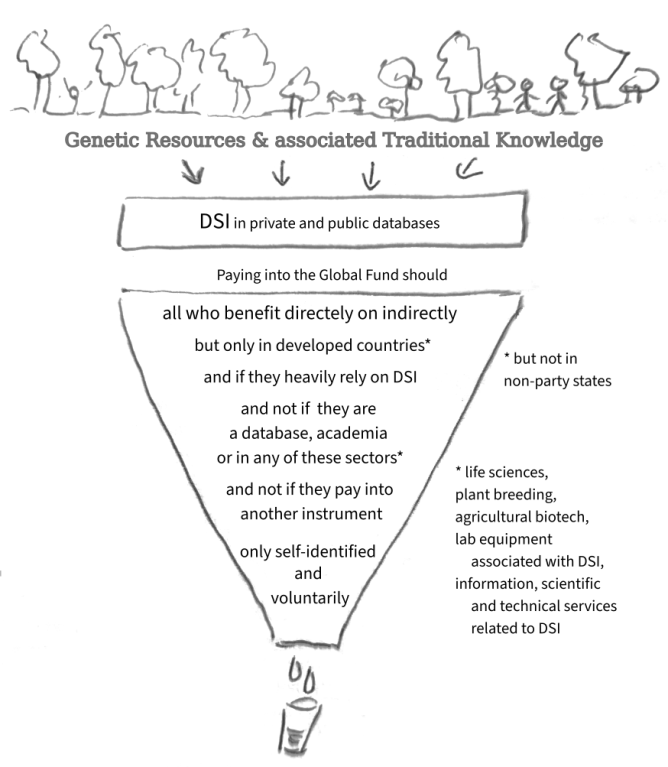The third objective of the Convention is an obligation to “the fair and equitable sharing of the benefits arising out of the utilization of genetic resources”.
The world was a different place in 1993 when this was decided. When the genome of whole organisms where sequenced it was a mile stone, but not many could have envisioned a point where samples can be sequenced and uploaded in the field; with GPS coordinates of the exact sampling location as additional metadata - and where digital biopiracy would be possible without physical material leaving the country.
And even now, the idea that this information can be shared across databases, seems to be settling in only slowly. Even harder to grasp is the idea, that these databases can include tools to find similar sequences, to include metadata such as use, traditional knowledge and locations, and to take that information and generate a new sequence from it: a digital sequence that might not exist in nature, but that is only possible because so many genetic resources and additional information were collected and added.
But while science has developed fast and far: the obligations of the Convention still stand.
Searching for sequences, comparing them with others, generating new ones: none of this is a goal in itself. It can result in ideas that can be marketed, into products that can be sold, and it requires equipment and services that users pay for. Even running the databases can be a business in itself. All of this is benefiting from the use of digital sequence information of genetic resources. And these benefits have to be shared with those that provided them, with those who conserve biodiversity and protect it against many forms of destruction, especially with IPLCs as stewards of biodiversity. But the current negotiations on DSI are not just chipping away on the obligation to share benefits: they take a sledge hammer to it. On one hand, access to genetic resources and thereby access to DSI is held up high: Nothing should even inconvenience science in the slightest, not even something as simple as asking whether a sample was acquired legally, or where it's coming from.
Private databases are not even talked about even though they have access to all the data in the public ones, and can combine it with other DSI as well as additional information that they keep to themselves and their customers.
But on the other hand, the draft decision excludes an evergrowing number of those who benefit from DSI a from the obligation to share benefits: users in developing countries, users that rely on DSI but not heavily, whole sectors such as databases, academia, life sciences, plant breeding, agricultural biotechnology, laboratory equipment required for DSI, or information and technical services related to it. So will we be left with just a few users in developed country parties, from sectors that heavily rely on DSI, voluntarily contributing based on their self-identification? Probably hoping that their shareholders don't objects to such voluntary contributions when so many other businesses won't be contributing to the Global Fund.
And then in four years the COP might look at whether this actually worked... Four years during which more and more genetic resources will have been fed into the databases, will have been consumed by AI tools - and will never come out of the databases again - e ven if the benefit-sharing did not function at all.

